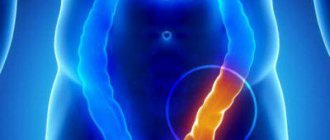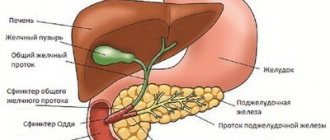The human body is constantly changing, as befits an active system. Therefore, you may feel sick from drinking coffee in the same way as from other common foods. To understand the body's reaction, it is necessary to understand the causes of nausea. Most often, such an unpleasant feeling occurs due to exceeding the permissible daily dosage or excessive strength of the drink.
Healthy people can drink no more than 3 cups per day, 200 ml for patients suffering from hypertension. As for the strength itself, in a glass of boiled water you need to put 1 teaspoon of coffee and 2-2.5 tbsp. l. sugar, natural milk or cream to taste.
Causes of nausea:
Coffee on an empty stomach
It contains extractive substances that have an irritating effect on the mucous membrane of the digestive organ. When the drink enters the stomach, bile is released, the mucous membrane is irritated, and an attack of nausea occurs. In addition, caffeine has a vasoconstrictor effect, which can also provoke an unpleasant sensation and even a gag reflex. An unpleasant feeling can also arise due to the strong strength of the drink. Tip: drink small amounts of coffee on an empty stomach. It is better if this drink is brewed in a Turk from freshly ground grains.
Irritation of the stomach mucosa
The gastrointestinal tract is constantly exposed to stress. A person takes food and drinks at least 3 times a day, or even more often. Not everything that goes into the stomach benefits the body. Sensitivity to irritants develops gradually, but if gastritis or a peptic ulcer of the digestive organ is observed, severe nausea after coffee may occur, including a gag reflex. If these diseases have been identified by specialists, this drink will be prohibited or a specific permitted daily allowance will be indicated.
What to do if you feel nauseous after drinking coffee
Deterioration in well-being refers to pathological reactions to the entry of caffeine into the body, so measures must be taken to avoid the development of complications. Regardless of the cause of nausea, you should provide access to fresh air, drink water, maintain physical and psychological rest, and get rid of items of clothing and accessories that compress the body. If you are prone to loss of consciousness, you need to moisten a cotton swab in ammonia, bring it to your nose and inhale the smell.
Single body reaction in the form of nausea
If you feel a little nauseous after drinking coffee, your body may be reacting to a hormonal imbalance. The drink stimulates the production of cortisol, which affects stomach tissue and stimulates the appearance of dyspepsia syndrome. To avoid deterioration of health, it is not recommended to drink strong drink, especially on an empty stomach and against the background of refusal of basic nutrition. Feeling better appears after a single vomiting.
Feeling dizzy and nauseous after drinking coffee
Dizziness after drinking coffee indicates increased blood pressure. The condition is characterized by impaired coordination of movements. To avoid falling and injury, if your health worsens, you should take a horizontal position. To drain blood from parts of the brain, you need to slightly raise your head. To lower blood pressure, you need to take a drug with antihypertensive properties.
Headache and nausea
Deterioration in health indicates increased intracranial pressure. The condition should be eliminated this way: take a horizontal position, apply a cold compress to your forehead. Using a diuretic helps reduce intracranial pressure.
To avoid developing nausea after drinking coffee, you need to choose only a natural product and not take it on an empty stomach. It is also important to maintain a moderate dose of the drink and promptly eliminate diseases of the stomach and duodenum.
How to get rid of nausea at home?
The following ways can help alleviate the condition at home:
- Prepare strong tea from equal amounts of chamomile, mint, lingonberry or St. John's wort leaves. Drink in small sips, but if you can’t make tea because you feel very nauseous, you can simply chew a leaf of any of the listed plants.
- Aromatherapy. To carry out this procedure, you will need essential oils such as tangerine, lavender, and citrus. Add a few drops to the aroma lamp and enjoy the pleasant scent. The unpleasant feeling should go away after a few minutes.
- Tea with lemon and ginger. The beneficial properties of this drink are that it neutralizes hydrochloric acid in gastric juice, eliminating the symptom of nausea.
- Grind 100 grams of dried cranberries and 200 grams of lingonberries. Pour in 3 cups of boiled water. Leave to infuse for 2-3 hours, strain through several layers of gauze. Daily dosage: 50 ml up to 6 times a day.
Use of coffee additives
Artificial and zero-calorie sweeteners activate gut bacteria, leading to digestive problems.
Non-dairy, low-fat and artificial creamers, and artificial sweeteners are not the best additives to drinks. Cream contains harmful ingredients - hydrogenated oils, corn syrup, thickeners, and other unnatural, harmful ingredients. Dipotassium phosphate, an ingredient used to break down the acidity of coffee, can lead to diarrhea and nausea.
To reduce acidity and obtain a mild taste, add natural milk or natural cream. Doctors recommend avoiding supplements. Black coffee without sweeteners or cream is much healthier and reveals more flavor.
Now in the West, non-traditional coffee additives have become fashionable, introduced with the light hand of an American traveling in Tibet. Nowadays it is customary to add butter and not cream and sugar to coffee. Moreover, it is desirable that the product be of high quality and made from the milk of cows grazing on natural meadows.
This may seem a little strange, but if the condition is met, it really gives the desired effect. People who drink coffee with butter provide their body with invigorating energy, protect against diseases and lose weight. If you replace sugar and milk with butter in your usual morning drink, you will get the incomparable taste of a creamy unsweetened latte and all the invaluable benefits of consuming the product.
Well, if you take a mixture of butter and coconut oil as a supplement, you will saturate your body with triglycerides - healthy fatty acids. In this case, in addition to the benefits of caffeine, the benefits of such an excellent product as coconut oil will be added. Your skin will become better and cleaner, your psyche will be able to withstand stress more effectively, and your digestion will only improve.
Harmful and beneficial properties of coffee
Beneficial features:
- Stimulates mental and physical activity.
- The antioxidant content allows you to even out your complexion and maintain youth.
- excites the CNS (central nervous system).
- reduces the risk of developing diabetes.
- improves memory.
And, another important quality of coffee is that it prevents the occurrence of carious plaque on teeth.
Negative properties for humans:
- With frequent use, calcium is washed out of the body;
- increases blood pressure if you drink more than normal;
- aggravates the course of pathologies of the gastrointestinal tract;
- sleep is disturbed;
- Nervousness and increased tension appear.
Pregnant women can drink coffee, but with great caution.
Effect of coffee on the body
Several dozen active ingredients have been found in coffee beans. Some disappear during frying, others undergo transformations, and others become more active. If you feel dizzy after coffee, it means that the active ingredients are not combined with the internal environment of the body, an overdose, or other problems that need to be sorted out.
The main active component of coffee is the alkaloid caffeine. It is also found in tea, cocoa and some types of nuts. It is he who is responsible for the tonic and stimulating properties of the drink, if it is made from high-quality natural grains, properly fried and brewed.
The alkaloid affects brain receptors. It stimulates brain activity, improves concentration and the speed of transmission of nerve impulses. The person goes through a state of drowsiness and stupor, he receives a charge of energy, which he strives to use in the right direction. As a rule, this condition lasts from 30 minutes to 2 hours. Subsequently, the concentration of caffeine in the blood decreases and the person may again feel tired.
If we consider the process of coffee’s influence on the body from the inside in more detail, then we should note a change in the condition of the blood vessels. The walls of the blood vessels acquire tone, blood flows through them with greater intensity, this causes the pulse and heartbeat to increase. Blood brings more nutrients and oxygen to organs and tissues.
But this does not happen for everyone. Some people, on the contrary, lose all their tone after drinking a cup of drink; they become drowsy, weak, and want to relax rather than cheer up. Some may experience dizziness and headaches, attacks of nausea and extreme fatigue. This is explained by the body’s individual reaction to the drink or poor quality coffee.
The method of preparing coffee is very important
Give up freeze-dried coffee and switch to natural coffee beans. Your body is probably rebelling against low-quality raw materials. Know that even well-known coffee producers, before presenting their products to consumers, are forced to be content with raw materials that pass through a chain of wholesalers and distributors.
Very often, grains traveling from the point of collection to production are mixed with each other, and the product has difficulty maintaining high standards. That is why do not buy cheap products, because they may well contain mold toxins. Use products from a proven, reputable brand, and then your energy from just one cup of coffee can be maintained for up to 20 hours.
Clinical picture
There is no general clinical picture of an overdose of a coffee drink. One person can drink three mugs of the strongest drink and still feel fine, while another feels bad even from a small cup.
Primary signs of overdose:
- Redness of the skin on the face.
- Brilliant eyes.
- Feeling of heat throughout the body.
- Trembling of limbs. The sensation of trembling usually occurs in the solar plexus area and then spreads throughout the body.
- Increased heart rate.
- Slight dizziness.
Secondary symptoms of overdose:
- Nausea. An attack of nausea can occur from drinking a cup of your favorite drink on an empty stomach.
- Increased sweating.
- Frequent urge to urinate. In case of overdose, coffee has a diuretic effect.
- Spasmodic pain in the stomach. Under the influence of caffeine, the vessels of the abdominal organs sharply narrow, and the person feels severe discomfort.
In large doses, caffeine causes food poisoning.
- Nervousness. Disruption of the nervous system occurs under the influence of long-term coffee consumption.
- Insomnia. Caffeine-induced agitation causes sleep disturbances.
- Blue skin in the area of the nasolabial triangle and under the eyes indicates dysfunction of the cardiovascular system.
- The appearance of hallucinations.
Strong drink addiction occurs when you drink more than 6 cups of strong drink during the day.
Weight jumps
If you give up coffee, you may gain weight or lose it quite quickly. It depends on your habits. If you are used to drinking sweet coffee with milk, cream, sugar or even syrups, then by giving up this drink you will reduce your calorie intake. In addition, coffee often “pulls” desserts, cookies and candies with it. And if you switch to water for a while, you will most likely get rid of these snacks.
But there is another option for the development of events. Some people, when giving up coffee, begin to experience increased cravings for sweets and fatty foods, since their body is accustomed to receiving a boost of energy from the drink and begins to look for other sources of energy.











